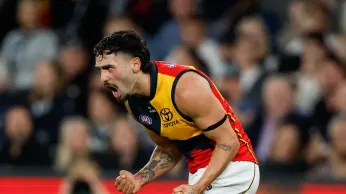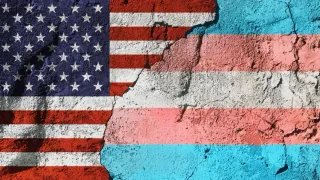
6 hours ago
AFL’s Izak Rankine Receives Reduced Suspension for Homophobic Slur, Citing Medical Reasons
READ TIME: 3 MIN.
Adelaide Crows forward Izak Rankine has been issued a four-match suspension by the Australian Football League (AFL) for directing a homophobic slur at an opponent during a recent game. The sanction, initially set at five matches, was reduced after the Crows presented what league officials described as a “compelling medical submission,” the details of which remain undisclosed due to privacy concerns. The incident has sparked renewed scrutiny of homophobia in the AFL and the processes by which the league addresses player conduct, especially on matters impacting the LGBTQ+ community .
Rankine’s use of a “highly offensive homophobic slur” occurred during a high-profile match, marking him as the sixth AFL-listed player banned for similar language in the past 16 months. The AFL’s chief executive, Andrew Dillon, stated that the reduction in Rankine’s suspension was warranted by the medical evidence submitted by the Crows but declined to elaborate on the nature of Rankine’s medical concerns. Adelaide’s CEO, Tim Silvers, expressed concern for Rankine’s mental health, noting the player had “basically not left his house for the last few days” and was “doing it pretty tough” following the fallout from the incident .
Despite the club’s support, Adelaide’s coach Matthew Nicks made it clear in public statements that Rankine should not be portrayed as the victim, emphasizing instead the harm caused by such language and the club’s commitment to better standards of conduct. “He has acknowledged where he went wrong and he’s worked his way through that in the right manner... But he’s not the victim in this. And by no means do we want that to be looked at that way—and he knows that,” Nicks told reporters .
The decision to reduce Rankine’s suspension has generated significant debate, with critics questioning whether the AFL’s disciplinary measures are sufficient to deter homophobic behavior and whether medical submissions should influence the penalties for discriminatory conduct. The controversy has led to renewed calls from LGBTQ+ advocates for greater transparency and stronger action against homophobia in sport.
Media coverage has highlighted the broader issue of language and inclusivity within the AFL, with Rankine’s suspension described as a “flashpoint” for ongoing efforts to create a safer and more respectful environment for all participants, including LGBTQ+ players and fans .
The AFL has faced criticism over the lack of clarity regarding the nature of the medical submission and whether similar considerations would apply in future cases. League officials maintain that the disciplinary process was rigorous and that Rankine’s remorse and the club’s support were taken into account, but have reiterated that there are “no excuses” for homophobic conduct .
For many in the LGBTQ+ community, the Rankine case underscores the persistent challenges faced by sexual and gender minorities in professional sport. Advocates have highlighted the importance of visible consequences for discriminatory behavior, not only as a deterrent but as a signal of support for LGBTQ+ inclusion. The fact that six AFL players have been sanctioned for homophobic language in just over a year points to a concerning prevalence of such conduct, raising questions about the effectiveness of existing education and prevention strategies .
LGBTQ+ organizations have called on the AFL to further invest in programs that address homophobia and promote respect, both on and off the field. In response to Rankine’s suspension, resources such as Beyond Blue (1300 22 4636) and Fullstop Australia (1800 385 578) have been highlighted for those affected by the incident or struggling with mental health concerns.
The AFL’s handling of the Rankine case will likely serve as a benchmark for future disciplinary actions, with stakeholders monitoring whether the league’s response leads to meaningful cultural change. As the finals season approaches, attention remains focused not only on the competition but on the values of respect and inclusion that underpin the sport.






